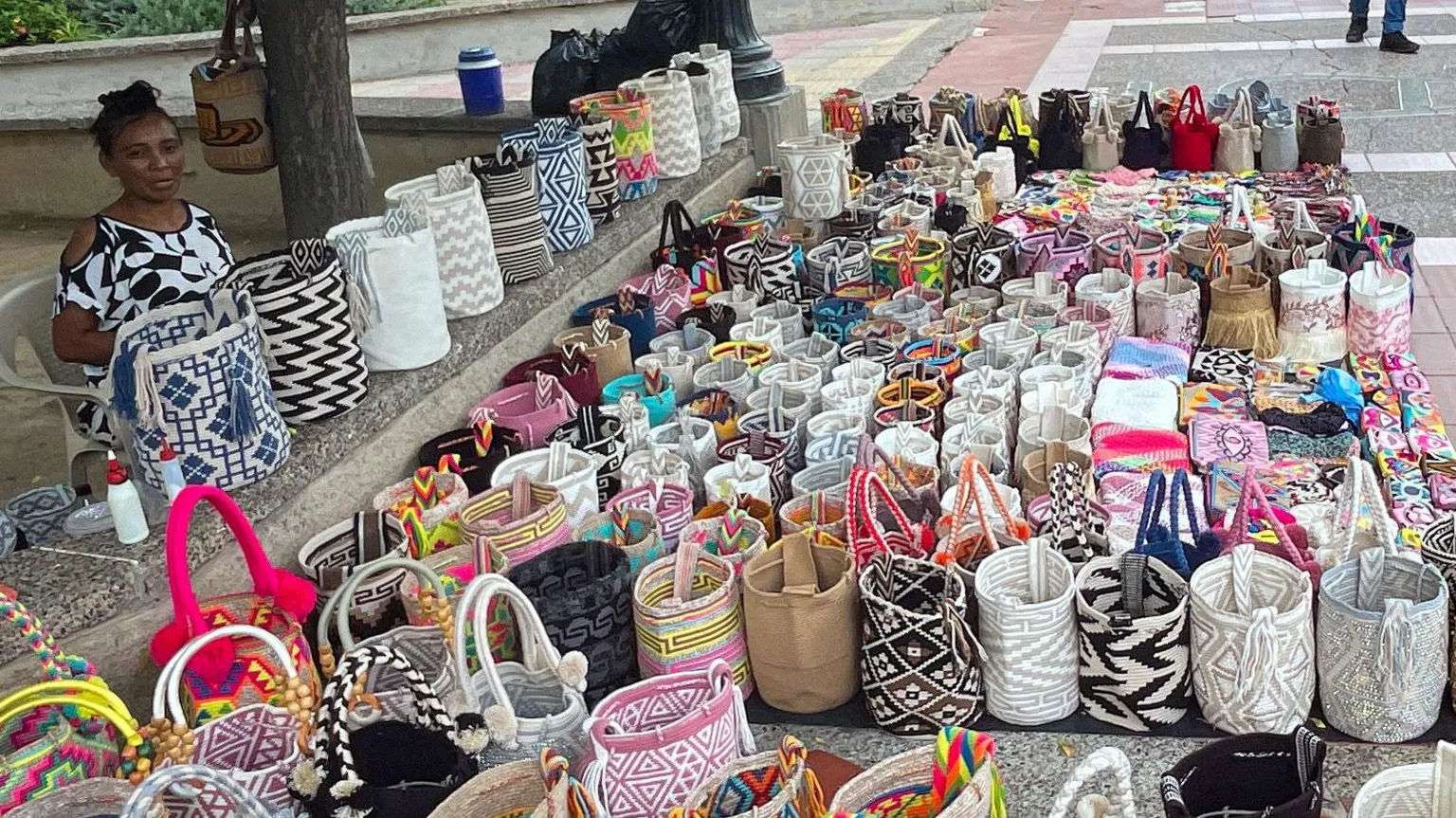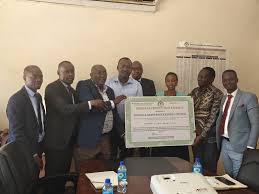Along the palm-lined promenade of Riohacha, a coastal city in northern Colombia, colourful handmade bags known as mochilas hang in the bright Caribbean sun. Each one tells a story — of culture, creativity, and struggle.
For Sandra Aguilar, every mochila she sells is more than a product. It’s a piece of her Wayuu heritage — the identity of Colombia’s largest Indigenous group, whose traditions stretch back centuries across the arid lands of La Guajira.
“When someone buys a mochila, they take a part of our story with them,” Sandra says. “It carries the spirit of our ancestors.”
Weaving has always been central to the Wayuu people, who number about 380,000 in Colombia and also live in parts of Venezuela. The craft is taught from mother to daughter, and every pattern and color has meaning — representing family clans, spirituality, and nature.
Traditionally, it could take weeks to finish a single bag, but each stitch was done with patience and pride. Today, mochilas are famous worldwide — sold on Etsy, Amazon, and Instagram, featured in fashion weeks from Paris to Shanghai, and carried by tourists and celebrities alike.
Yet behind the beauty of these bags lies a difficult truth. Many weavers still live in poverty, struggling to survive in La Guajira, one of Colombia’s poorest regions.
The rising global demand for mochilas has brought opportunity — but also exploitation. Some artisans now face pressure to produce faster and cheaper, often selling through middlemen who pay as little as $5 per bag. After buying thread and paying transport, a weaver may earn just $1.50, despite days of work.
“Many Wayuu women are forced to accept whatever price they’re offered,” explains Paula Restrepo, director of Fundación Talento Colectivo, a group that supports indigenous artisans. “Everyone profits except the women who do the weaving.”
Not all intermediaries exploit the weavers. Paula says some act as “solidarity intermediaries” — helping establish fair trade systems where women are paid fairly and work safely.
Her foundation runs leadership and business training for Wayuu women, so they can manage their own sales in the future.
One partner, One Thread Collective, offers training, microloans, and market access for female artisans. The goal, Paula says, is simple:
“We want the women to become independent — to lead, to earn, and to be respected as the artists they are.”
One of the weavers who joined the workshops is Yamile Vangrieken, who lives on the outskirts of Riohacha.
Sitting on a bright orange chinchorro (traditional hammock), she proudly talks about leading a small group of relatives who weave together.
Yamile helps her family sell mochilas through One Thread Collective, earning enough to support her teenage daughter — who began weaving when she was just four years old.
“I want my daughter to keep our traditions,” Yamile says softly. “But I also want her to weave because she loves it, not because she has no other choice.”
The popularity of mochilas has drawn entrepreneurs and global buyers to La Guajira. Colombian businesswoman Laura Chica, founder of Chila Bags, started her company after tourists abroad admired her mochila.
She focuses on high-quality designs that preserve traditional Wayuu patterns and pay fair wages. Her brand has been featured in Vogue China and major fashion shows around the world.
“There are two markets now,” Laura explains. “One respects the story and pays fairly. The other only cares about speed and profit.”
Brandon Miller, an American entrepreneur who runs Wayuumarket.com, helps weavers sell directly to buyers online. But he says competition has grown intense, with foreign businesses now visiting La Guajira themselves, using translation tools and AI to communicate.
Even influencers from China and Thailand stream live from the region, selling mochilas in real-time to their followers.
This global attention brings visibility — but also the risk of losing control over the craft’s meaning and authenticity.
Back on Riohacha’s promenade, Sandra worries that some weavers are changing their designs to please tourists — adding beads, religious icons, or football logos. She fears that in chasing sales, some may lose touch with what makes the mochila truly Wayuu.
“We are also artists, even if we don’t have a certificate to say so,” Sandra says with pride. “Our essence is in every thread we weave. If we lose our traditions, we lose who we are.”
From Riohacha’s bustling markets to international fashion runways, the mochila continues to carry the stories, struggles, and strength of the Wayuu people.
Now, with fair trade initiatives and the leadership of women like Sandra, Yamile, and Paula, these artisans are proving that empowerment — not exploitation — is the path forward.
Each bag remains a vibrant reminder that heritage and hope can be woven together, one stitch at a time.



